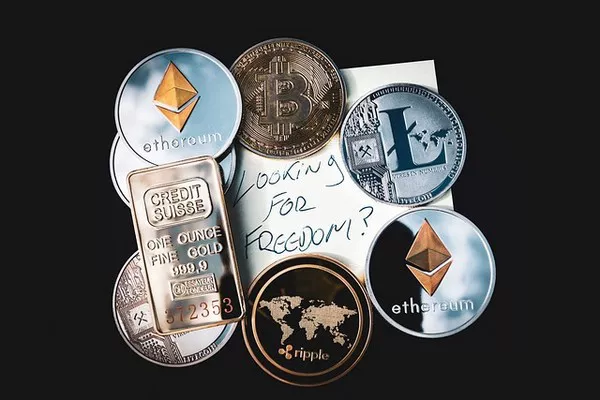Selling silver can be a lucrative endeavor, whether you’re looking to liquidate inherited items, capitalize on market trends, or simply declutter your possessions. However, navigating the process of selling silver requires careful consideration to ensure you get the best value for your precious metal. In this guide, we’ll explore the various aspects of selling silver, from understanding its value and finding reputable buyers to choosing the right selling method and optimizing your sale.
Understanding Silver Value
Before you sell silver, it’s crucial to understand its value. The price of silver fluctuates based on market demand, economic conditions, geopolitical factors, and industrial uses. The value of your silver items will primarily depend on their purity, weight, and current market price.
Purity and Hallmarks: Silver purity is typically measured in fineness or millesimal fineness (parts per thousand). For instance, sterling silver is 92.5% pure (marked as 925), while pure silver is 99.9% (marked as 999). Hallmarks or stamps on your silver items indicate their purity and authenticity.
Weight: The weight of silver items, often measured in troy ounces, determines their intrinsic value. One troy ounce equals approximately 31.1 grams. Be sure to weigh your items accurately to assess their worth.
Current Market Price: Silver prices are quoted per troy ounce in major currencies like USD. Monitoring silver price trends through financial news, online resources, or trusted dealers can help you decide when to sell for optimal returns.
Finding Reputable Buyers
Choosing the right buyer is crucial for a successful silver sale. Reputable buyers ensure fair pricing, transparency, and security throughout the transaction process. Here are some reliable options to consider:
Local Coin and Bullion Dealers: Established dealers specialize in buying and selling precious metals. They offer competitive prices based on current market rates and can provide expertise on silver valuation.
Online Precious Metal Dealers: Trusted online platforms facilitate silver sales, offering convenience and competitive pricing. Look for well-reviewed sites with transparent pricing and secure shipping options.
Auction Houses: Auctions can attract collectors willing to pay premium prices for unique silver items. Professional auction houses handle valuations, marketing, and sales, although they may charge fees or commissions.
Scrap Metal Refiners: If your silver items are damaged or not collectible, selling to scrap metal refiners can be an option. They assess silver based on weight and purity, offering immediate payment.
Choosing the Right Selling Method
Selecting the appropriate selling method depends on factors such as your timeline, the type of silver items you have, and your comfort level with the selling process. Consider these methods:
Direct Sale: Selling directly to a dealer or collector allows for immediate payment and straightforward negotiations. It’s ideal for those seeking quick liquidity and competitive pricing.
Online Selling Platforms: Websites like eBay or specialized precious metal forums enable you to reach a broader audience of potential buyers. Take precautions against scams and ensure secure shipping and payment methods.
Consignment: Consigning your silver items to a reputable dealer or auction house can maximize sale prices, albeit with longer processing times and potential fees.
Local Auctions: Participating in local auctions or estate sales can attract local buyers interested in silver collectibles. Auctions provide competitive bidding environments, potentially increasing sale prices.
Preparing Your Silver for Sale
Preparing your silver items can enhance their appeal and value in the marketplace. Follow these steps to present your silver effectively:
Clean and Polish: Remove tarnish and dirt using appropriate silver cleaning solutions and polishing cloths. Clean items showcase their quality and condition, attracting higher offers.
Document and Authenticate: Gather documentation such as certificates of authenticity, appraisals, or historical provenance to verify the legitimacy and value of your silver items.
Photograph and Describe: Take clear, detailed photographs of your silver from multiple angles. Write accurate descriptions highlighting dimensions, weight, purity, and any distinguishing features.
Negotiating and Closing the Sale
Negotiating a fair price requires knowledge of current market trends and confidence in your silver’s value. Consider these tips when finalizing the sale:
Set Realistic Expectations: Research comparable sales and current market prices to establish a realistic selling price. Be prepared to negotiate while aiming for a mutually beneficial agreement.
Be Flexible: Remain open to different payment methods (cash, bank transfer, certified check) and consider factors like buyer reputation, convenience, and security.
Verify Payment and Delivery: Ensure payment is secure before releasing your silver items. Use tracked shipping methods with insurance to protect against loss or damage during transit.
Legal and Tax Considerations
Understanding legal and tax implications is crucial when selling silver:
Capital Gains Tax: In many jurisdictions, profits from selling silver may be subject to capital gains tax. Consult with a tax professional to understand your tax obligations and potential exemptions.
Documentation: Keep records of sales transactions, receipts, and any relevant paperwork for tax reporting purposes.
See Also How Much Is A 1976 Silver Dollar Worth Today
Conclusion
Selling silver can be a rewarding process when approached with knowledge and careful planning. By understanding silver valuation, choosing reputable buyers, selecting the right selling method, and preparing your silver effectively, you can maximize your returns while ensuring a smooth transaction. Whether you’re selling silver coins, bullion, jewelry, or antiques, taking these steps will help you navigate the market confidently and achieve the best possible outcome.
Remember, each silver item is unique, and market conditions vary. Stay informed, assess your options carefully, and leverage professional advice to optimize your silver selling experience. With diligence and preparation, you can turn your silver assets into valuable opportunities.


